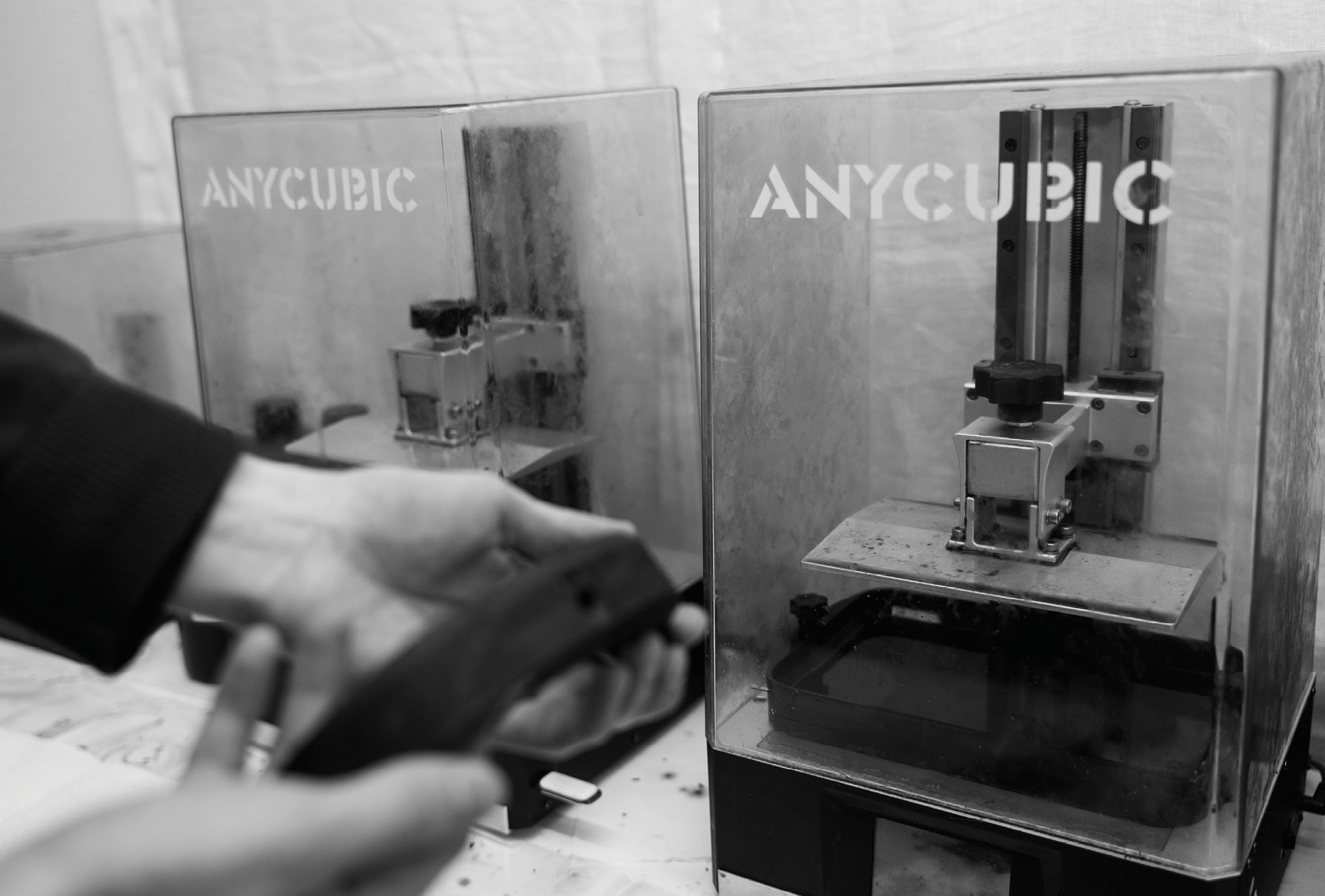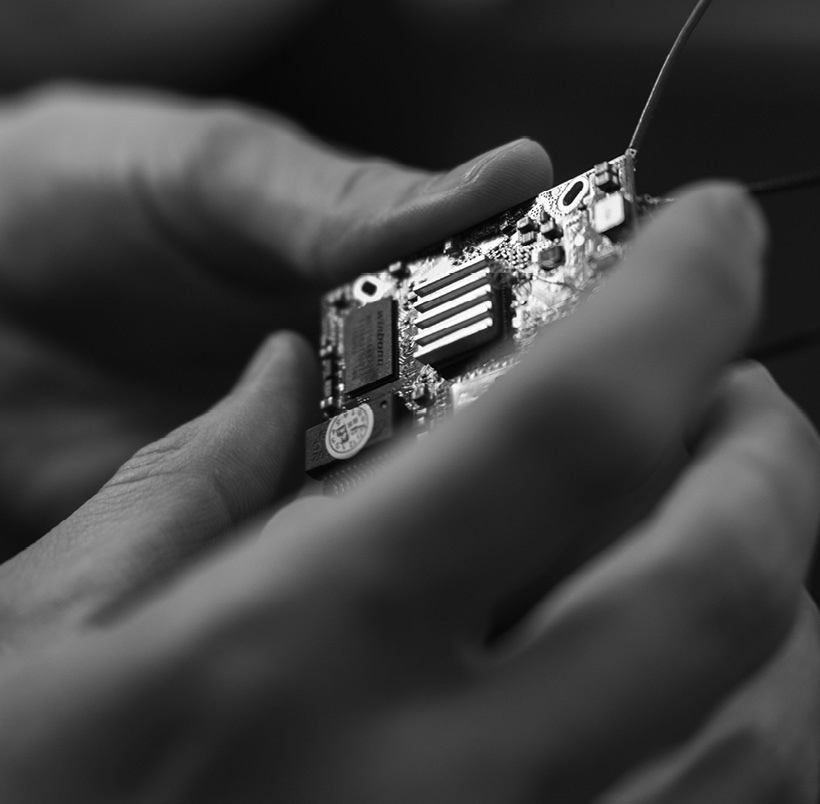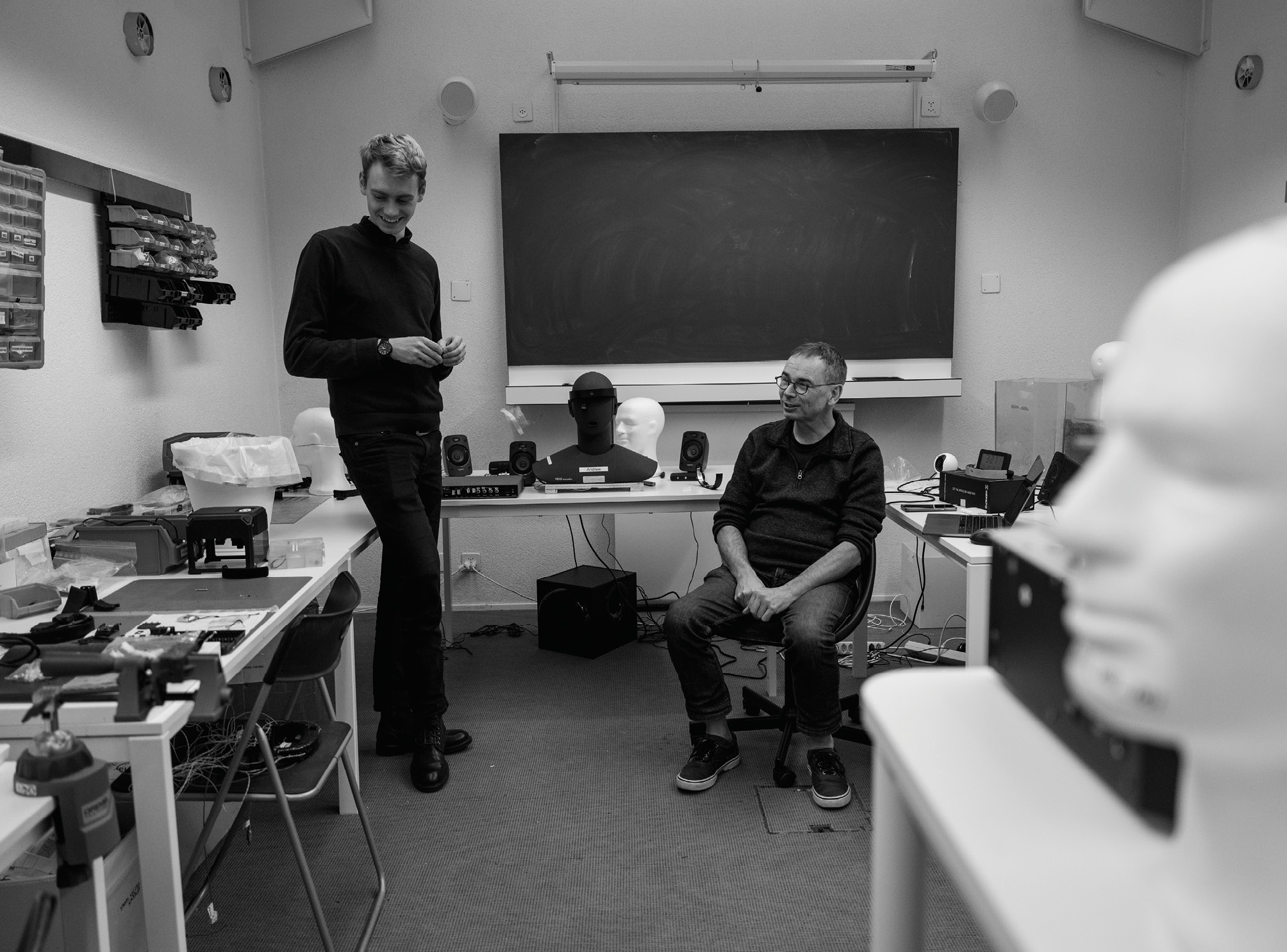Sebastian Pietsen dreams big: with his start-up Almar Technologies, the “under 30” catalog maker wants to create a relevant European player in the technology sector. The company relies on artificial reality glasses that industrial companies can use to provide remote training and troubleshooting. In the next year alone, Beetzen wants to increase sales tenfold.
Few companies are as good at introducing new products as Apple. This was evident again this summer when the Cupertino company presented “Apple Vision Pro” — a video that showed app menus floating in space, websites that the user moved around his living room with simple gestures, games that took the promise of new levels of immersion, and images that spanned nearly the entire field of vision. “With Apple Vision Pro, you can create the perfect workspace wherever you are,” promised a voice at the presentation.
Although the demonstration was widely welcomed, the ideas presented were not new. Google Glass, Google's augmented reality glasses, was introduced back in 2012 (Apple Vision Pro has virtual reality capabilities in addition to AR). The promise: In addition to point-of-view video recordings, Google Glass should show pedestrians interesting information about the sights they pass or news directly in their field of view. Eleven years later, things have gotten pretty quiet around Google Glass.
But technology has by no means disappeared. “We believe that AR is a very important technology for accessing intelligence. The smartphone and the computer, together with the Internet, have become the most powerful media for data and knowledge exchange. AR is the next level,” says Sebastian Pietsen. Technologies' CEO Pietsen: “We believe that reality is still the most important thing – and AR has the potential to make everyday life easier without getting in our way. At its best, an AR product is like a personal assistant that is always with you and provides all the insights of humanity at any time.” can
At least that's the view. But the startup founded in 2021 is still far from that. “Arc” is currently only used by Swiss industrial companies such as Swisscom, OC Oerlikon or SFS Group. This year, the 30-person team around Beetzen says it will achieve sales in the low six-figure range. When asked if the startup is profitable, Pietsen laughs: “We're still a long way from profitability. But next year we would like to increase our sales almost tenfold – that is also realistic.” This will be achieved with the second generation of arc glasses, which will be shipped to the first customers in early 2024.

But mix in the AR market Apart from Apple, the world's largest technology companies, Meta and Microsoft have related products. Can Pietsen and his company prove themselves in this field?
Pietsen studied mechanical engineering in Lausanne, where he met co-founder Timon Binder (now CTO at Almar Technologies). “We worked on exciting projects together and played an all-nighter or two. As a result, we still have a great relationship today, we're almost like brothers,” says Pietsen. In his sophomore year, he also started studying computer science. His semester abroad in the Netherlands also gave him an international perspective. Swiss wanted to gain experience. “I applied to Tsinghua University in China (one of the most prestigious technical universities in China) – and was accepted. “That's where I got seriously involved with 3D computer vision for the first time,” says Swiss. According to entrepreneurs, this technology is the basis not only for autonomous driving, but also for augmented reality.
The lab where Pietsen did his research was at the forefront of AR algorithms, which is why Apple took notice. “The algorithm that the lab developed is better than what was before,” Swiss said. The index was particularly characterized by its high performance. “And then Apple came with an army of software developers to integrate this algorithm into Apple products.” The research team, which included Pietsen, explained to Apple's developers how the code worked. Americans embraced the algorithm and turned research into a product. “It's used in every iPhone today,” says founder Almar.
In February 2020, Pietsen was on holiday at home in Switzerland – but due to the corona pandemic, “the holidays dragged on”, as he puts it. Shortly after, he was invited by ETH Zurich to work with Microsoft on the mechanisms for HoloLens. “It was great because we had a lot of money and I got to work with really smart people,” says Pietsen. “But it was frustrating because the HoloLens is an impressive device, but it's not a good product. She's trying to do everything — so she's not good at anything.”

Along with some friends The tech entrepreneur began researching a more compact, lightweight device that would be affordable for consumers. However, when the team went to ETH with their idea, it was rejected: “They kicked us out and said: You can't write papers about it, it's too applicable.” That's why Pietsen founded Almar Technologies with his friend Timon Binder. Two business angels. The team soon received initial funding from Innosuisse, the Swiss organization for innovation funding. A year after the company was founded, Almar began manufacturing and supplying customers with the first generation of arc glasses. “We worked with industrial companies from the first day and immediately noticed: they really like this. Some wanted to buy prototypes from us, some of them were broken,” says Pietsen with a smile. Almar Technologies did not sell prototypes, but the demand was obvious.
According to the founder, the quick launch of the product, most of its individual parts were made in Shenzhen, China and assembled in Switzerland, was very helpful because it allowed the startup to gather valuable feedback for the second generation. Additionally, big companies got to know about Almar, which also helped them find investors. In June, Almar closed a financing of CHF 4.5 million. According to Pietsen, the new money will be used for research and production of “Ark 2”, as well as expanding the team. According to its own information, the start-up has raised a total of ten million CHF since its founding, a fifth of which has been research funding.
Almar makes money through subscription model. Customers pay €149 per month for a pair of glasses, which includes services and training. Almar replaces defective glasses free of charge. According to Beetschen, there are currently “a few hundred” pairs of glasses in circulation. But plans are underway to increase production to 1,000 units per quarter next year and 1,000 units per month thereafter.

Swiss cover of issue 10-23 titled “Under 30” by Sebastian Pietsen
According to Pietsen, the most common applications of Arc are remote training and remote troubleshooting in industrial enterprises. “Many of our customers, most of them machine manufacturers, have their headquarters in Switzerland but produce all over the world,” says the founder, describing a classic use case. “For example, if there's a problem in the US, the staff there can just put on the glasses. With a camera in the glasses, the expert in Zurich sees exactly what the American sees. He can then use a display to indicate certain parts to his colleague: 'Take this screw and open this piece.' ” It saves time and money. The potential isn't limited to industry — the glasses support backbone operations — but the start-up is trying to keep a narrow focus.
This is also the USP of the start-up. While other AR headsets such as Microsoft's HoloLens are also being used in the industry, Pietsen likes to focus: “We're not trying to do everything, just one thing – and do it well. Our glasses only have the essentials: the display of the glasses is small but high resolution. We only have one camera, But it's in the right place. It makes the whole device very light and comfortable.” By comparison: According to Microsoft, the HoloLens 2 weighs 566 grams, while the Arc only weighs 138 grams.

Also in the gaming industry Many AR headsets are used. But Pietsen reiterates that his company doesn't want to lose focus: “We'll never really do gaming. I'll eat broomsticks.” Instead, Pietsen is interested in one day implementing eye tracking and brain-computer interface, the interface between the human brain and a computer, into his glasses. “With such an interface, the operation is much faster than typing or voice control,” says the founder. Sounds too futuristic? This is. The second generation of Arc is still controlled via buttons, voice control and “head micro-gestures”, i.e. light head movements.
To realize his vision of AR as a personal assistant, Pietsen will have to expand his company's focus sooner or later. But now the focus is on completing the production and release of Ark 2 successfully. The initiative looks beyond Swiss national borders. According to the founder, Almer Technologies is already in discussions with some well-known German companies. Pietsen: “We already have a lot to do.” Sebastian Pietsen dreams big: with his start-up Almar Technologies, the “under 30” catalog maker wants to create a relevant European player in the technology sector. The company relies on artificial reality glasses that industrial companies can use to provide remote training and troubleshooting. In the next year alone, Beetzen wants to increase sales tenfold.

Sebastian Pietsen studied mechanical engineering and computer science in Lausanne before moving to China in 2019 for his research. In 2021 he founded the start-up company Almar Technologies in Bern.
Photos: Miriam Gamba Danielson